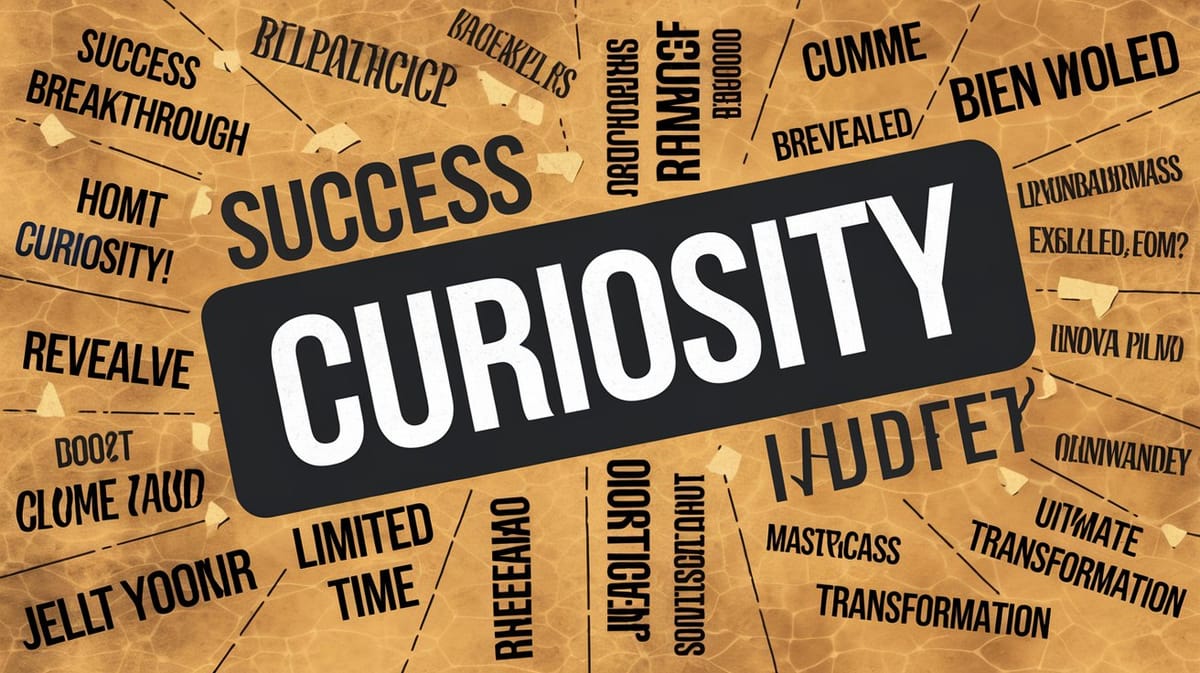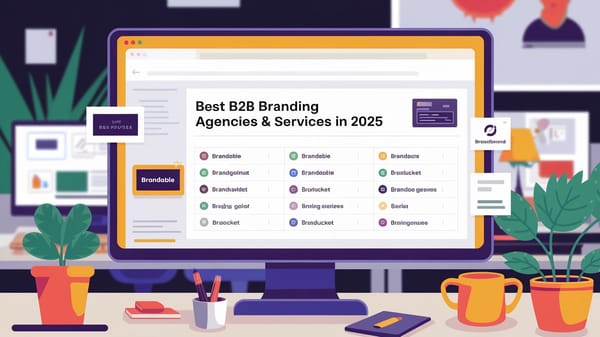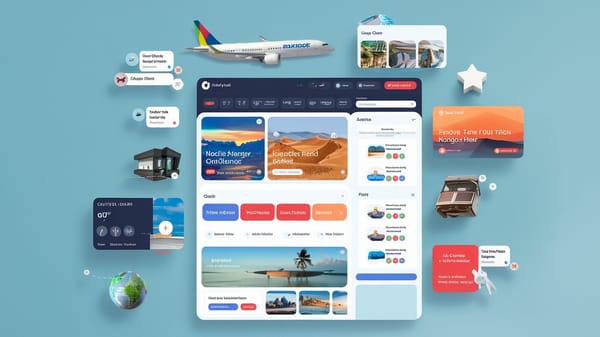99+ Emotional Trigger Words That Spark Curiosity And Boost Conversions

In the ever-evolving landscape of digital marketing, the strategic use of language has emerged as a pivotal tool for engaging audiences and driving conversions. Emotional trigger words, in particular, have gained prominence due to their ability to evoke strong psychological responses and influence consumer behavior. These words are not merely decorative elements in marketing copy; they are powerful catalysts that can transform passive readers into active customers.
Research indicates that emotionally charged advertisements convert 70% of customers, a stark contrast to the 30% conversion rate of ads that evoke mild emotions. This is largely because 95% of purchasing decisions are influenced by subconscious factors, many of which are deeply rooted in emotions. By tapping into these emotional undercurrents, marketers can significantly enhance their conversion rates. For instance, Claspo.io highlights that emotionally driven campaigns can nearly double the success rate of rationally oriented ones.
The effectiveness of emotional trigger words is further supported by studies such as those conducted by OptiMonk, which found that headlines containing emotional trigger words had a 73% higher click-through rate compared to those without. This underscores the importance of crafting messages that resonate on an emotional level, thereby fostering a deeper connection with the audience.
Moreover, the psychological impact of these words extends beyond mere engagement. As noted by Lilach Bullock, emotionally charged words can bypass rational thought processes, leading to quicker decision-making. This is particularly advantageous in marketing, where the goal is often to prompt immediate action. By leveraging cognitive biases such as the fear of missing out (FOMO) or the desire for belonging, marketers can create a sense of urgency and scarcity, compelling consumers to act swiftly.
In conclusion, the strategic use of emotional trigger words is a powerful technique that can significantly enhance marketing effectiveness. By understanding and harnessing the psychological impact of these words, marketers can craft compelling messages that not only capture attention but also drive meaningful engagement and conversions. As we delve deeper into this report, we will explore a curated list of 99+ emotional trigger words that can spark curiosity and boost conversions, providing actionable insights for marketers seeking to optimize their communication strategies.
You can also visit Oncely.com to find more Top Trending AI Tools. Oncely partners with software developers and companies to present exclusive deals on their products. One unique aspect of Oncely is its “Lifetime Access” feature, where customers can purchase a product once and gain ongoing access to it without any recurring fees. Oncely also provides a 60-day money-back guarantee on most purchases, allowing customers to try out the products and services risk-free.
Oncely are hunting for the most fantastic AI & Software lifetime deals like the ones below or their alternatives:

Table of Contents
- Understanding Emotional Trigger Words
- The Psychology Behind Emotional Trigger Words
- Categories of Emotional Trigger Words
- Positive Emotional Triggers
- Negative Emotional Triggers
- Application of Emotional Trigger Words in Marketing
- Headlines and Subheadings
- Call to Action (CTA)
- Emotional Triggers and Consumer Behavior
- Influence on Decision-Making
- Building Emotional Connections
- Ethical Considerations in Using Emotional Trigger Words
- Measuring the Effectiveness of Emotional Trigger Words
- Analyzing Conversion Rates
- Consumer Feedback and Engagement
- Future Trends in Emotional Trigger Words
- Impact of Emotional Trigger Words on Conversions
- Emotional Triggers and Conversion Metrics
- Emotional Triggers in Digital Marketing Campaigns
- Emotional Triggers and Consumer Psychology
- Case Studies of Successful Emotional Trigger Campaigns
- Challenges and Considerations in Using Emotional Triggers
- Emotional Triggers and Brand Loyalty
- Emotional Triggers and Social Media Engagement
- Emotional Triggers in B2B Marketing
- Emotional Triggers and Cultural Sensitivity
- Future Directions for Emotional Trigger Words
- Effective Use of Trigger Words in Marketing Strategies
- Strategic Placement of Trigger Words
- Pop-Ups and Widgets
- Product Descriptions
- Emotional Resonance in Marketing Campaigns
- Storytelling and Brand Narratives
- Personalization and Customization
- Leveraging Data Analytics for Trigger Words
- Consumer Behavior Analysis
- A/B Testing and Optimization
- Ethical Use of Trigger Words
- Transparency and Honesty
- Cultural Sensitivity
- Integrating Trigger Words Across Digital Channels
- Email Marketing
- Social Media Engagement
- Landing Pages and CTAs
- Strategic Placement of Trigger Words
Understanding Emotional Trigger Words
The Psychology Behind Emotional Trigger Words
Emotional trigger words are powerful tools in marketing, designed to evoke specific psychological responses from consumers. These words tap into the subconscious mind, influencing emotions and behaviors. The effectiveness of these words lies in their ability to connect with the core emotions such as joy, fear, anger, and trust. According to AeroLeads, emotional words stand out in content, grabbing attention and keeping consumers engaged. This engagement is crucial in converting potential customers into loyal ones.
Categories of Emotional Trigger Words
Positive Emotional Triggers
Positive emotional triggers are words that evoke feelings of happiness, trust, and security. These words are often used to create a sense of well-being and assurance among consumers. For instance, words like "joy," "love," and "trust" are commonly employed to foster a positive brand image. As noted by Brasco Marketing, trust is a significant emotional trigger that can lead to customer loyalty and repeat purchases.
Negative Emotional Triggers
Negative emotional triggers, such as fear and urgency, are used to create a sense of necessity or FOMO (Fear of Missing Out). These words can be highly effective when used ethically, as they prompt immediate action from consumers. For example, phrases like "limited time offer" or "last chance" can drive quick decision-making. However, Brasco Marketing cautions that misuse of fear can negatively impact a brand's reputation.
Application of Emotional Trigger Words in Marketing
Headlines and Subheadings
Emotional trigger words are most effective when used in headlines and subheadings. These are the first elements a consumer sees, and they play a crucial role in capturing attention. According to LeadMine, using trigger words in headlines can significantly increase click-through rates and engagement. Words like "discover," "exclusive," and "proven" are examples of powerful trigger words that can enhance the effectiveness of headlines.
Call to Action (CTA)
The call to action is another critical area where emotional trigger words can be utilized. A well-crafted CTA can drive conversions by urging consumers to take immediate action. For instance, using words like "free," "now," and "guaranteed" can create a sense of urgency and assurance, prompting consumers to act. ReferralCandy highlights that these words are often used to provoke action and create a sense of urgency.
Emotional Triggers and Consumer Behavior
Influence on Decision-Making
Emotional triggers play a significant role in influencing consumer decision-making processes. By tapping into emotions, marketers can create compelling narratives that resonate with consumers on a deeper level. This connection can lead to increased brand loyalty and higher conversion rates. As Strikingly notes, campaigns that utilize emotional triggers are often more memorable and persuasive than those relying solely on rational content.
Building Emotional Connections
Building emotional connections with consumers is essential for long-term brand success. Emotional trigger words can help create these connections by aligning brand messaging with consumer values and emotions. For example, using words that evoke nostalgia or empathy can foster a sense of belonging and community among consumers. Frontiers in Communication emphasizes the importance of understanding consumer emotions to effectively communicate and build emotional connections.
Ethical Considerations in Using Emotional Trigger Words
While emotional trigger words can be powerful marketing tools, it is essential to use them ethically. Misleading consumers or exploiting emotions can lead to negative brand perceptions and loss of trust. Marketers should ensure that their use of emotional triggers aligns with their brand values and provides genuine value to consumers. Brasco Marketing advises caution when using negative triggers like fear, as they can backfire if not used responsibly.
Measuring the Effectiveness of Emotional Trigger Words
Analyzing Conversion Rates
One way to measure the effectiveness of emotional trigger words is by analyzing conversion rates. By tracking changes in conversion rates before and after implementing emotional triggers, marketers can assess their impact. Tools like A/B testing can be used to compare different versions of marketing content and identify which emotional triggers are most effective.
Consumer Feedback and Engagement
Another method to evaluate the effectiveness of emotional trigger words is through consumer feedback and engagement metrics. Monitoring social media interactions, comments, and reviews can provide insights into how consumers perceive and respond to emotional triggers. This feedback can help marketers refine their strategies and improve the emotional resonance of their campaigns.
Future Trends in Emotional Trigger Words
As consumer behavior and preferences evolve, so too will the use of emotional trigger words in marketing. Emerging trends such as personalization and artificial intelligence are likely to shape the future of emotional marketing. By leveraging data analytics and machine learning, marketers can gain deeper insights into consumer emotions and tailor their messaging to resonate more effectively. This personalized approach can enhance the impact of emotional triggers and drive higher engagement and conversions.
In conclusion, understanding and effectively utilizing emotional trigger words is crucial for marketers aiming to boost conversions and build strong emotional connections with consumers. By aligning these words with consumer emotions and values, brands can create compelling narratives that resonate deeply and drive action. However, ethical considerations must be taken into account to ensure that the use of emotional triggers aligns with brand integrity and consumer trust.
Impact of Emotional Trigger Words on Conversions
Emotional Triggers and Conversion Metrics
The use of emotional trigger words in marketing is a strategic approach to enhance consumer engagement and drive conversions. These words are designed to evoke specific emotional responses, which can significantly influence consumer behavior. To measure the impact of these words on conversions, marketers often rely on various metrics. Conversion rate is a primary metric, representing the percentage of visitors who take the desired action, such as making a purchase or signing up for a newsletter. By comparing conversion rates before and after implementing emotional triggers, businesses can assess their effectiveness (Nestify).
Emotional Triggers in Digital Marketing Campaigns
In digital marketing, emotional trigger words are often used in various elements such as email subject lines, social media posts, and online advertisements. These words aim to capture attention quickly and motivate consumers to engage with the content. For instance, words like "exclusive," "limited time," and "proven" can create a sense of urgency and exclusivity, prompting immediate action. This strategic use of language can lead to higher click-through rates and ultimately, increased conversions (LeadMine).
Emotional Triggers and Consumer Psychology
Understanding consumer psychology is crucial when employing emotional trigger words. The human brain processes emotions more rapidly than logic, making emotional appeals particularly effective in marketing. Emotional triggers tap into core emotions such as joy, fear, and desire, which can drive consumer decisions. By aligning marketing messages with these emotions, businesses can create compelling narratives that resonate with consumers on a deeper level, leading to increased brand loyalty and conversions (Cartworthy).
Case Studies of Successful Emotional Trigger Campaigns
Several brands have successfully leveraged emotional trigger words to boost conversions. For example, TOMS Shoes uses altruistic triggers by promoting their social responsibility initiatives, appealing to consumers who value ethical consumption. This approach not only enhances brand image but also encourages consumers to make purchases based on emotional connections to social causes. Similarly, Coca-Cola's "Happiness" campaign effectively uses positive emotional triggers to associate their brand with joy and community, resulting in increased consumer engagement and loyalty (Conversion Sciences).
Challenges and Considerations in Using Emotional Triggers
While emotional trigger words can be powerful tools for increasing conversions, they also present certain challenges. Marketers must ensure that these words are used ethically and align with the brand's values. Misleading or manipulative use of emotional triggers can lead to consumer distrust and negative brand perception. Additionally, the effectiveness of emotional triggers can vary across different audiences and cultural contexts, necessitating a tailored approach to messaging (Nestify).
Emotional Triggers and Brand Loyalty
Emotional triggers not only drive immediate conversions but also play a significant role in building long-term brand loyalty. By creating emotional connections with consumers, brands can foster a sense of belonging and community. This emotional engagement encourages repeat purchases and transforms consumers into brand advocates. For instance, brands that successfully evoke emotions like trust and nostalgia can strengthen consumer relationships and enhance brand loyalty (AeroLeads).
Emotional Triggers and Social Media Engagement
Social media platforms provide a unique opportunity for brands to utilize emotional trigger words to enhance engagement. By crafting emotionally resonant content, brands can increase likes, shares, and comments, thereby expanding their reach and influence. Emotional triggers such as humor, surprise, and excitement are particularly effective on social media, where content is consumed rapidly and often shared widely. This increased engagement can lead to higher brand visibility and, ultimately, more conversions (LeadMine).
Emotional Triggers in B2B Marketing
While emotional triggers are commonly associated with B2C marketing, they are equally important in B2B contexts. Business buyers, like individual consumers, are influenced by emotions in their decision-making processes. Emotional triggers can be used in B2B marketing to build trust, convey value, and differentiate from competitors. For example, words that evoke confidence and reliability can reassure business clients and encourage them to choose one service over another (Conversion Sciences).
Emotional Triggers and Cultural Sensitivity
The effectiveness of emotional trigger words can vary significantly across different cultural contexts. Words that evoke strong emotions in one culture may not have the same impact in another. Therefore, marketers must consider cultural nuances when crafting messages with emotional triggers. This cultural sensitivity ensures that marketing campaigns resonate with diverse audiences and avoid potential misunderstandings or negative perceptions (Cartworthy).
Future Directions for Emotional Trigger Words
As technology and consumer behavior continue to evolve, the use of emotional trigger words in marketing is likely to become more sophisticated. Advances in data analytics and artificial intelligence provide marketers with deeper insights into consumer emotions, enabling more personalized and effective use of emotional triggers. This data-driven approach can enhance the impact of emotional marketing strategies and drive higher engagement and conversions (Nestify).
Effective Use of Trigger Words in Marketing Strategies
Strategic Placement of Trigger Words
The strategic placement of trigger words within marketing content is crucial for maximizing their impact. Unlike previous discussions on the general use of trigger words, this section focuses on specific areas where these words can be most effective.
Pop-Ups and Widgets
Pop-ups and widgets are prime locations for emotional trigger words due to their direct engagement with users. These elements can capture attention immediately and prompt action, making them ideal for words that evoke urgency or exclusivity. For example, using phrases like "limited offer" or "exclusive access" in pop-ups can significantly increase conversion rates (Claspo.io).
Product Descriptions
Incorporating trigger words into product descriptions can enhance their appeal by highlighting benefits and creating a sense of need. Words such as "transformative," "innovative," and "effortless" can make products more enticing, encouraging potential customers to make a purchase (Lilach Bullock).
Emotional Resonance in Marketing Campaigns
While previous sections have addressed the general application of emotional triggers, this section delves into their role in creating emotional resonance within marketing campaigns.
Storytelling and Brand Narratives
Trigger words can be effectively used in storytelling to build emotional connections with the audience. By weaving these words into brand narratives, marketers can evoke emotions such as nostalgia, hope, or excitement, which can enhance brand loyalty and engagement. For instance, using words like "journey," "legacy," or "dream" can create a compelling story that resonates with consumers on a personal level (AeroLeads).
Personalization and Customization
Personalization is a powerful tool in marketing, and trigger words can enhance its effectiveness. By tailoring messages to reflect individual preferences and emotions, marketers can create a more personalized experience. Words that convey understanding and empathy, such as "tailored," "personalized," or "crafted for you," can make consumers feel valued and understood, leading to increased engagement and conversions (Lilach Bullock).
Leveraging Data Analytics for Trigger Words
This section explores how data analytics can be utilized to optimize the use of trigger words, differing from previous discussions on general effectiveness measurement.
Consumer Behavior Analysis
Data analytics can provide insights into consumer behavior, allowing marketers to identify which trigger words resonate most with their audience. By analyzing metrics such as click-through rates, time spent on page, and conversion rates, marketers can refine their strategies to include the most effective words. This data-driven approach ensures that marketing messages are aligned with consumer preferences and behaviors (Nestify).
A/B Testing and Optimization
A/B testing is a valuable method for determining the effectiveness of trigger words in marketing campaigns. By testing different variations of content with specific trigger words, marketers can identify which words drive the most engagement and conversions. This iterative process allows for continuous optimization of marketing strategies, ensuring that trigger words are used to their fullest potential (Claspo.io).
Ethical Use of Trigger Words
While previous sections have touched on ethical considerations, this section focuses on the ethical implications of using trigger words in marketing strategies.
Transparency and Honesty
Marketers must ensure that the use of trigger words aligns with ethical standards of transparency and honesty. Misleading consumers with exaggerated claims or false promises can damage brand reputation and erode trust. Trigger words should accurately reflect the benefits and features of a product or service, providing genuine value to consumers (Ethics of Writing).
Cultural Sensitivity
Cultural sensitivity is crucial when using trigger words, as their impact can vary across different cultural contexts. Marketers should be aware of cultural nuances and avoid words that may be offensive or inappropriate in certain regions. By conducting thorough research and understanding cultural differences, marketers can ensure that their use of trigger words is respectful and effective (Nestify).
Integrating Trigger Words Across Digital Channels
This section explores the integration of trigger words across various digital channels, expanding on previous discussions of their use in specific contexts.
Email Marketing
In email marketing, trigger words can enhance subject lines and body content to increase open and click-through rates. Words that create a sense of urgency or exclusivity, such as "limited time," "exclusive offer," or "act now," can compel recipients to take immediate action. This strategic use of language can lead to higher engagement and conversions (Lilach Bullock).
Social Media Engagement
Social media platforms provide an opportunity to engage with audiences using trigger words that provoke interaction and discussion. Words that stir curiosity or emotion, such as "discover," "inspire," or "challenge," can encourage users to engage with content and share it with their networks. This can amplify the reach and impact of marketing campaigns, driving greater brand awareness and engagement (AeroLeads).
Landing Pages and CTAs
Landing pages and calls-to-action (CTAs) are critical touchpoints for using trigger words to drive conversions. By incorporating words that emphasize benefits or solutions, such as "unlock," "solve," or "achieve," marketers can guide users towards taking the desired action. This focused approach can enhance the effectiveness of landing pages and increase conversion rates (Claspo.io).
Conclusion
The research on emotional trigger words highlights their significant role in enhancing consumer engagement and boosting conversions in marketing strategies. Emotional trigger words, which tap into core emotions such as joy, fear, and trust, are powerful tools that influence consumer behavior by creating compelling narratives that resonate deeply with audiences. These words are strategically used in various marketing elements, including headlines, CTAs, and digital content, to capture attention and drive immediate action. The effectiveness of these words is evident in increased click-through rates, higher conversion rates, and strengthened brand loyalty, as they help build emotional connections with consumers (AeroLeads, LeadMine).
However, the ethical use of emotional trigger words is crucial to maintaining brand integrity and consumer trust. Marketers must ensure that these words align with brand values and are used transparently to avoid misleading consumers. Additionally, cultural sensitivity is essential, as the impact of trigger words can vary across different cultural contexts. As consumer behavior evolves, leveraging data analytics and personalization will be key in optimizing the use of emotional triggers, allowing marketers to tailor their messaging more effectively and enhance the emotional resonance of their campaigns (Nestify, Ethics of Writing). Future trends in emotional marketing will likely involve more sophisticated use of technology and data-driven insights to create personalized and impactful marketing strategies that drive higher engagement and conversions.





